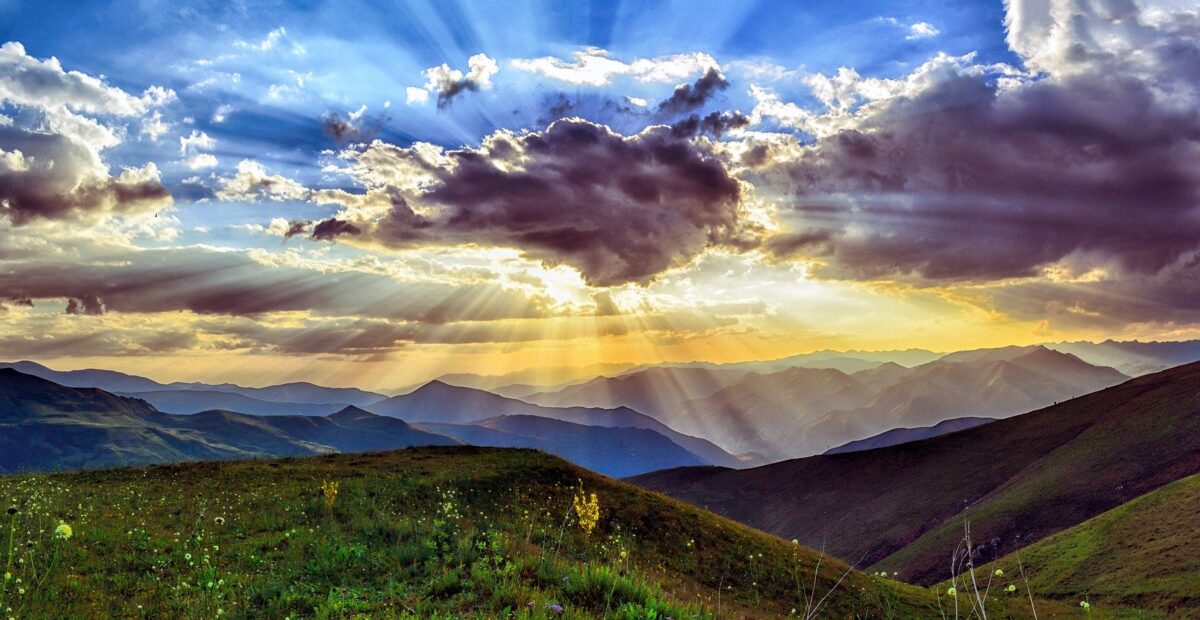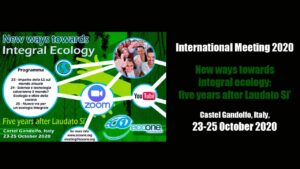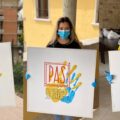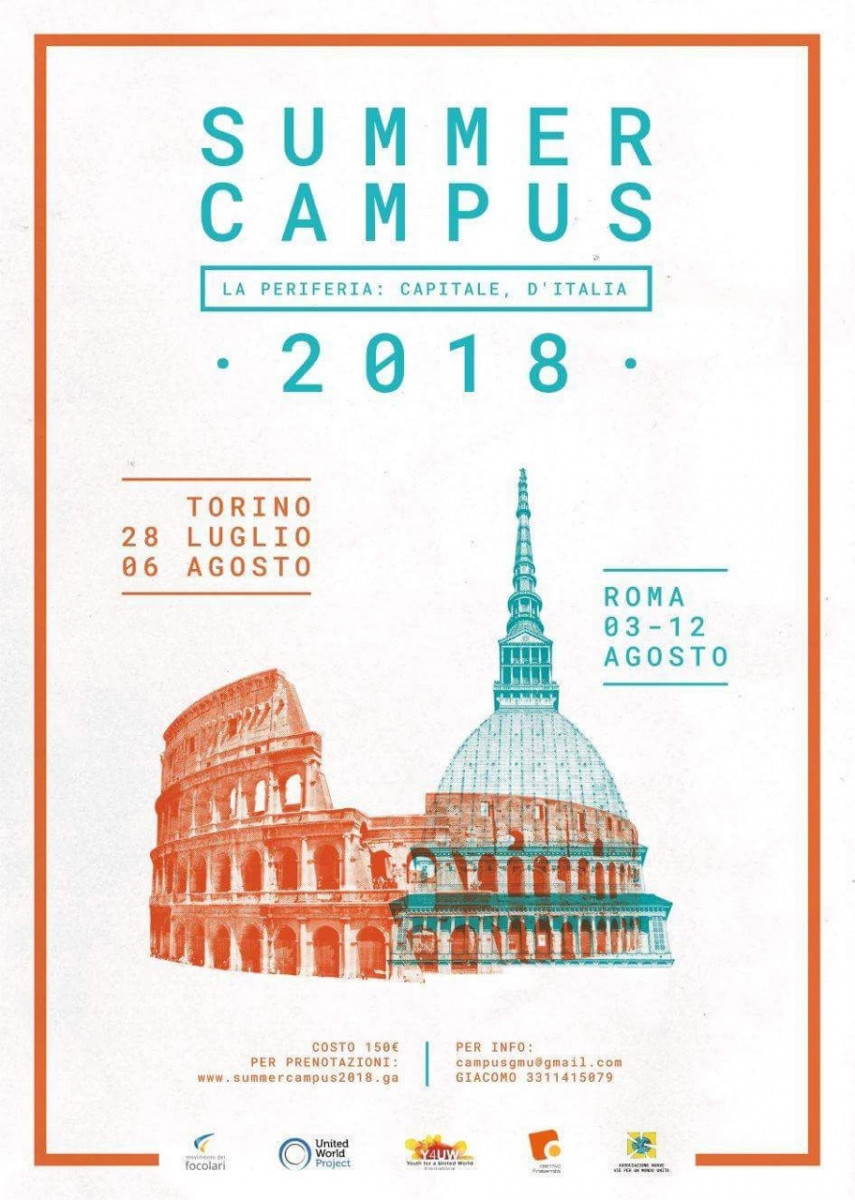
Workshop
New ways towards integral ecology: five years after Laudato Si’

From 23 to 25 October, Focolare’s Ecology initiative EcoOne is offering a meeting to examine the impact of “Laudato si’”, the Pope’s encyclical letter on the contemporary world and new ways towards integral ecology. From Castel Gandolfo near Rome, the meeting aims to highlight the role of individuals and social entities in caring for our Common Home.

We tracked down Professor of Physics Luca Fiorani, coordinator of the interdisciplinary EcoOne initiative, as he was travelling through central Italy. By phone, we ask him for a preview of the New Ways Towards Integral Ecology: five years after Laudato Si’ event, organized by EcoOne to be held in Castel Gandolfo, Italy from 23-25 October. The program includes spoken and visual presentations, round-table discussions, workshops on various themes and plenary sessions of dialogue with speakers and participants both in person and online.
Prof. Fiorani, where did the idea for this meeting come from?
The idea emerged even before Pope Francis declared a special year of reflection on his encyclical Laudato Si’ from 24 May 2020 to 24 May 2021. For us at EcoOne – an interdisciplinary cultural initiative since 1998 emphasizing the concept of inter- relatedness in nature and the presence of God under all things – we felt it was essential to reflect on this encyclical. Among the pillars of this document are precisely these two concepts: inter-relatedness in nature, and in fact the “everything is interrelated” concept so dear to Pope Francis, and the presence of God under all things – which must be understood correctly. It’s not some form of pantheism, but rather as the Fathers of the Church, mystics and theologians have always said, God is in some way present in Creation and in His creatures.
What is the event hoping to achieve?
To consider Laudato Si’ and the impulse to open new ways beyond Laudato Si’. Not because it’s out dated, but to be able to put the thought it contains into practice. In effect, a cultural elaboration and its practical significance. The last session, in fact, is dedicated to “good practice” in the educational, ecological, environmental and other fields.
Is the meeting for experts only or for the ecologically-engaged as well?
Some of the presentations might prove challenging for non-experts. However some of the sessions are specifically designed to be formative. For example the session looking at the economic perspective is designed to be educational. Ecology and economy are tightly linked, even in the etymology of the two words. Without a revolution, a radical change in our financial-economic paradigm, we can never hope to be respectful of the care necessary for the Common Home. So there will be contributions dedicated to sustainable development, the ‘Circular Economy’, ‘Happy Degrowth’, openness towards possible new ways of understanding economy, drawing from the rich cultural heritage of Chiara Lubich.
One of the sessions specifically involves people of different religious backgrounds. What made you choose to do this?
It is from the point of view of universal fraternity, which Pope Francis emphasizes in his new encyclical Fratelli Tutti. It’s nothing new within the Church to seek an alliance with people of faith, in caring for our Common Home. We too are striving together to understand the contribution of people who base their action on faith, in working for the common good of this Planet.
In Laudato Si’, Pope Francis points out the dangers of the ‘technocratic paradigm’. In this meeting, you’ve included a session entitled “Will Science and Technology Save the World?” Is there not a contradiction here?
It’s an intentionally provocative title. Implicit is our view that the answer is likely to be “no”. We hold that science and technology alone canNOT save the world. The answer we perceive in our reading of things is that a change of paradigm in the system of development is needed, another way of understanding life and economy. If we go on viewing economy as unlimited growth, unlimited material progress – that mirage – then science and technology will not be sufficient to make us respect the Planet. Renewable energy sources, energy efficiency, hydro-electricity, solar power, will not be enough to save the world. We won’t make it. This is the conclusion many of us have come to, and we want to reflect on.
Click here for more information about the meeting.
What is EcoOne ?
EcoOne is an international cultural initiative which began in 1998, inspired by Chiara Lubich, founder of the Focolare Movement and by Sergio Rondinara, Epistemology scholar. EcoOne is sustained by a network of academics, researchers and professionals working in the environmental sciences. They strive to enrich their scientific knowledge with an in depth humanistic reading of contemporary ecological issues.
With other partner organizations which pursue the aim of the universal destination of goods and a closer inter-dependence among countries, EcoOne attempts to introduce and promote such principles in environmental matters on social, political and economic levels.
Imagen de RÜŞTÜ BOZKUŞ en Pixabay.






